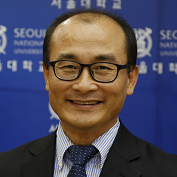Biography
Sung-Sang Yoo is an Associate Professor in the Department of Education and Director of the Global Education Cooperation Program, an interdisciplinary graduate program at Seoul National University, South Korea. Before his current position, he worked as a research fellow at the Korean Educational Development Institute (KEDI) and Hankuk University of Foreign Studies after obtaining a Ph.D. in Education from the University of California, Los Angeles with a specialization in International and Comparative Education. He has taught sociology of education, theories of education development, comparative education, global citizenship education, social justice transformative education, and the theories of Paulo Freire, and has actively participated in the implementation of international education development cooperation programs in South Asian countries, Sub-Saharan African countries, and Latin American countries. He has focused particularly on the role of basic primary education and teacher education/training in developing countries in facilitating a better education. He has been an active member of academic communities and both international and domestic education associations, including the Paulo Freire Institute / UCLA, the World Council of Comparative Education Societies (WCCES), the Korean Comparative Education Society (KCES), the Korean Society of Education for International Understanding (KSEIU), the Korean Educational Research Association (KERA), and the Korea Association of International Development and Cooperation (KAIDEC), among others. As a distinguished Korean scholar in the field of international education greatly influenced by Paulo Freire and Amartya Sen, he has delivered many lectures regarding the role of education in international development and cooperation.

